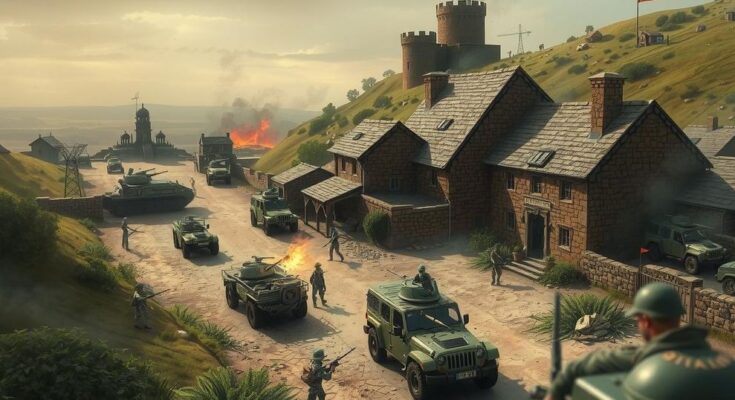M23 rebels in eastern Congo have disregarded ceasefire calls from the Congolese and Rwandan governments, capturing Walikale as part of their advance. The conflict has roots in historic tensions and regional dynamics. Leaders from M23 assert their independence from Rwanda, demanding direct talks with Kinshasa for conflict resolution, while the situation continues to evolve into a potentially wider regional war.
In eastern Congo, Rwandan-backed M23 rebels have dismissed ceasefire calls from Kinshasa and Kigali, asserting that such appeals “do not concern us.” The rebels recently captured Walikale, marking their most western advance and signaling a significant escalation in the ongoing conflict, which has roots in historical tensions following the 1994 Rwandan genocide and competition over local mineral resources.
Walikale, a strategic town with a population of 15,000, fell to the rebels after intense fighting with the Congolese military and allied militias. This location, rich in minerals such as tin, links four eastern provinces, furthering the rebels’ control as they inch closer to the major city of Kisangani.
Following a meeting in Doha, where Congolese President Felix Tshisekedi and Rwandan President Paul Kagame convened for direct discussions, a call for immediate ceasefire was issued. However, M23 leader Corneille Nangaa proclaimed that their motivations stem from local Congolese issues rather than foreign direction, stating, “We are Congolese who are fighting for a cause.”
Despite expectations for direct talks between Congo and M23, the rebel group withdrew from the upcoming discussions in Angola, citing European Union sanctions as a pretext. Nangaa insisted that true resolution comes only through direct dialogue, advocating for the end of what they claim as Tutsi persecution in Congo and structural governance improvements.
International observers note Rwanda’s alleged military support of M23, a claim Rwanda continues to deny, arguing its operations are defensive. The situation depicts a potential transformation into a broader regional conflict, as multiple neighboring countries engage militarily.
As tensions increase, the request for a peaceful resolution remains a priority for M23 as they seek acknowledgment of their demands through negotiations. Their actions highlight the persistent instability in the region, necessitating ongoing international involvement and resolution efforts.
The situation in Eastern Congo remains precarious as M23 rebels capture key territories in defiance of ceasefire calls. Their recent advances exacerbate regional tensions and underline the complex interplay of historical grievances and local politics. The rebels’ demands for direct negotiations emphasize the need for a diplomatic approach to resolve ongoing conflicts and foster stability.
Original Source: www.straitstimes.com




